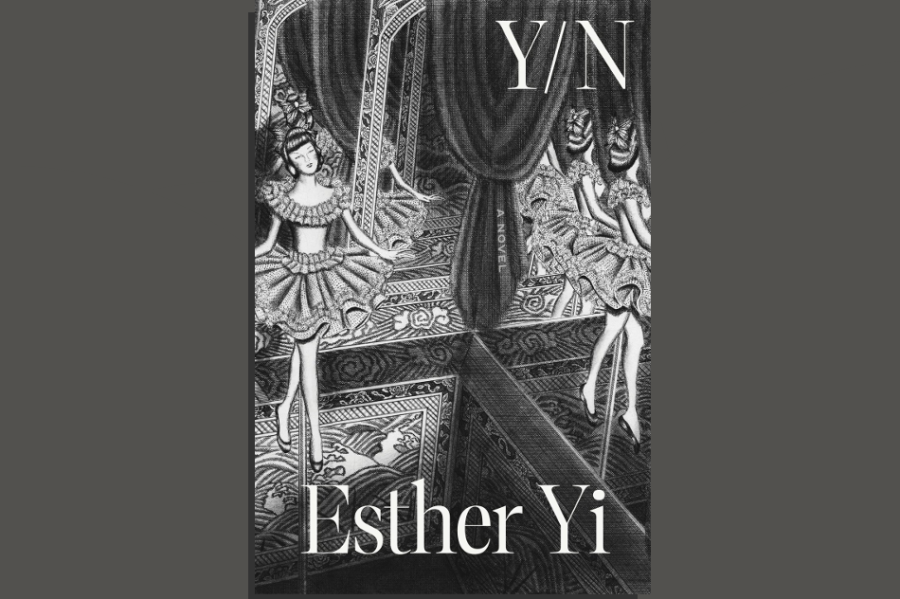‘Y/N’ explores teen desires using fan fiction
Amazon
Esther Yi’s debut novel, “Y/N: A Novel,” is a meditation on the longing of a digitized age connecting to fan fiction.
May 31, 2023
Esther Yi’s debut, “Y/N: A Novel,” is a tale about a woman’s devouring obsession with the K-pop boy band member Moon, who has gone abruptly missing after his most recent world tour. She crosses seas to Seoul, where she encounters the myriads of people whose unrequited love for the boy has carved canyons into their hearts, despite them never knowing him personally. In this surreal landscape, she’s aimless, she makes impulsive decisions and she’s ferried along by the Kafkaesque turnings of the corporation that manages the boy. The occasional companion muses aloud about the nature of desire, and she says of Moon: “I don’t want to meet him; I want to have known him for years and years.”
Published in March 2023, “Y/N” is named after “Your/Name” fanfiction, where the reader is implored to self-insert into a story where they’re suddenly the romantic interest of their favorite celebrity. The novel’s structure does pay adequate homage to its namesake, in that the narrative is occasionally interrupted by the narrator’s own homebrew fiction in Your/Name format, the absurdity of which slowly begins to mimic the narrator’s own life.
But “Y/N” is a novel about more than just K-pop boys, since Ms. Yi seeks to meditate on the nature of modern desire and solitude. She does this often through her characters’ philosophical dialogue, which, after we meet the fourth character who talks like a broken robot with a philosophy degree, becomes rather old.
Ms. Yi’s prose, however, is abundant with poetic observations such as: “It was the neck that disturbed me. Long and smooth, it implied the snug containment of a fundamental muscle that ran down the body all the way to the groin.”
“Y/N” is plagued by a lack of strong characters: the novel’s unnamed protagonist is rather passive save for a few plot-advancing impulsive decisions, which keeps in line with “Your/Name” fanfiction, where the protagonist is intentionally left a blank slate.
Alongside the plain protagonist, the small cast of side characters is rather forgettable. I think this is supposed to represent solitude in the modern age, where relationships are made temporary and disposable by increasingly commercialized means of interaction. But if real life is lonely, why then, should literature be lonely too? Should a novel not call us to be more than we already are, rather than notifying us of what we already know?
While I do not recommend this book, it is easy to see that Ms. Yi’s new novel was made with a talent that very well may flourish further, and that it is one in a long line of novels that will deal with the malaise of a digitized age, and how the longing that arises from it results in obsession and transformation, heartbreak and transfiguration.




























































